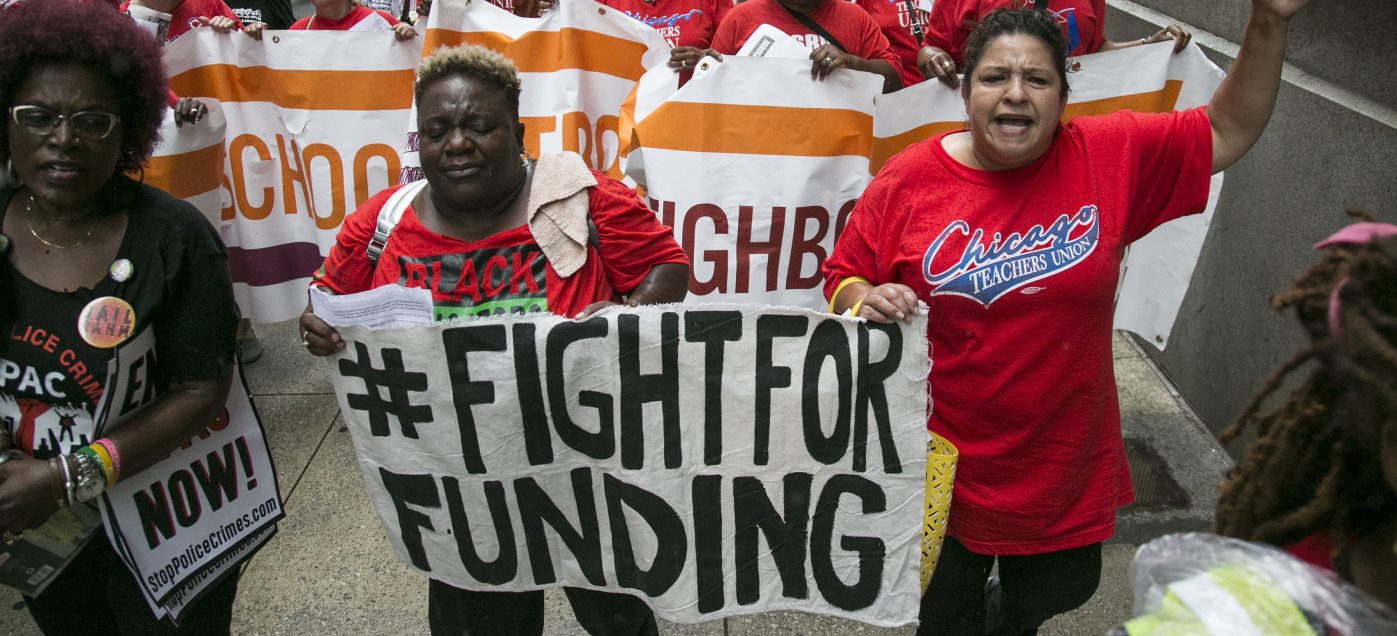Citation for above image: (CTU plans May Day rally calling for more school funding. (2017, April 28). Chicago Sun Times. Retrieved May 17, 2018, from https://chicago.suntimes.com/news/ctu-plans-may-day-rally-calling-for-more-school-funding/)
For our first paper of the semester, I engaged with the question of what does it mean to be an effective community organizing group? In the context of education in the US, this is a question that our class as a whole has essentially been grappling with this semester. As citizens who will enter the world soon, how do we ensure that we actively and effectively engage with the community? This semester I have taken away a few key principles that I believe are essential to answering this question.
- Everything a person does for a community should be done alongside the community.
- Money is not a necessary nor sufficient component of community organizing; used in the proper way, however, money can have a significant positive effect on the impact of one’s organizing.
- Systemic problems in education are layered, so a multi-faceted approach is the only way to solve our country’s most demanding educational problems.
From this class, I have taken away that any person in any part of the world should help any person in need of help in any part of the world; however, when helping those who are different than you, whether that is a difference in race, gender, residential location, or any other identity, it is imperative that you help them in the way they want to be helped by working with them. At Bowdoin College, on Residential Life, we have a saying that I think is applicable to this principle of organizing—we call it the Platinum Rule: do not treat others how you want to be treated, treat others how they want to be treated. By organizing in accordance with the more traditional Golden Rule, we can fall into the trap of assuming what is best for the community based on what we think we would want for the community, when in reality because we are not a part of that community, we do not know what that community truly needs. Thus, as organizers, we must empower the community by working with them to achieve what they want.
In order to be an effective community organizer, however, you do not necessarily need money, and if you do have money, simply having money is not enough to be an effective community organizer either. The focus of this website is on the role of money in education. Public schools need money to function, and many public schools in the US do not have enough money. The issue of fixing or improving public schools, however, cannot only be solved through the injection of money, which brings me to my third principle that we need to simultaneously execute a variety of strategies in order to solve problems in education today. We do need to increase public school funding, and we cannot use models of education where students can opt out of poor-performing schools, as that inherently reduces the amount of money those public schools have. However, in order to make poor-performing schools high-performing, there needs to simultaneously be other strategic initiatives that root out structural weaknesses that have led to the failing of those public schools. This has to be a “this and that” not a “this or that” strategic action.
